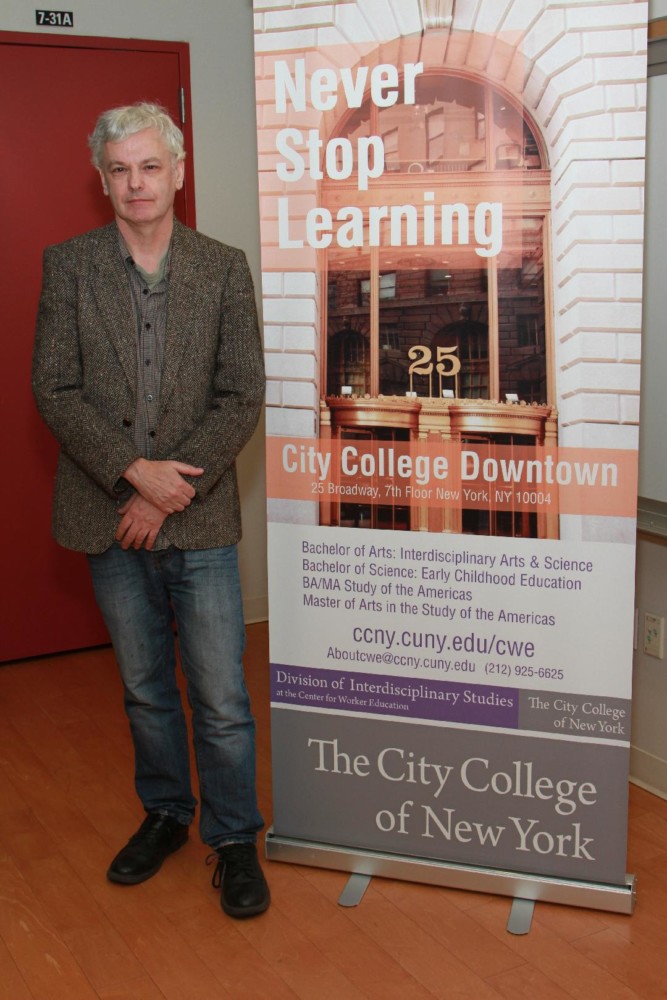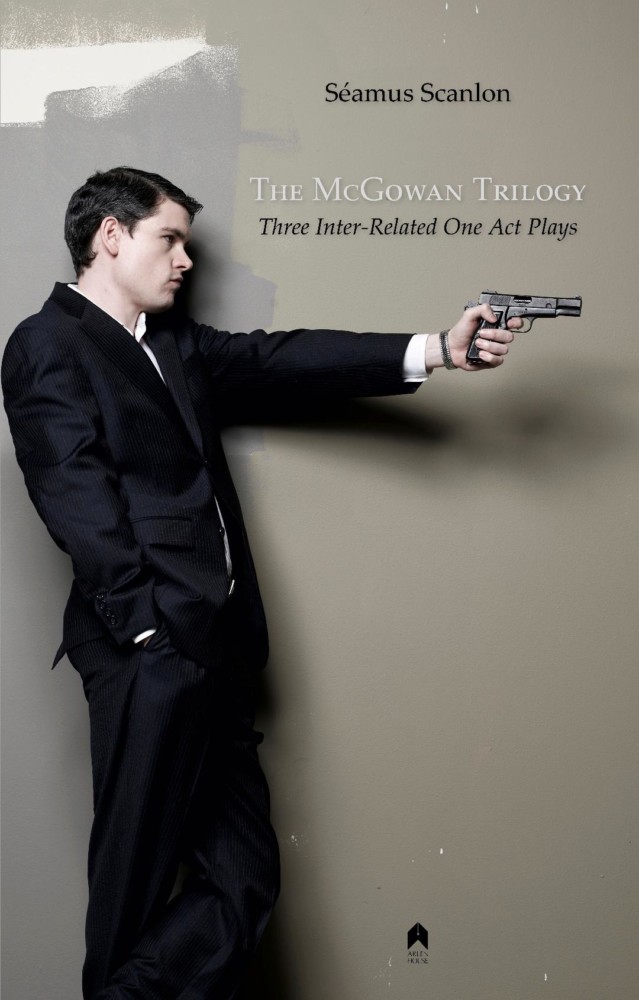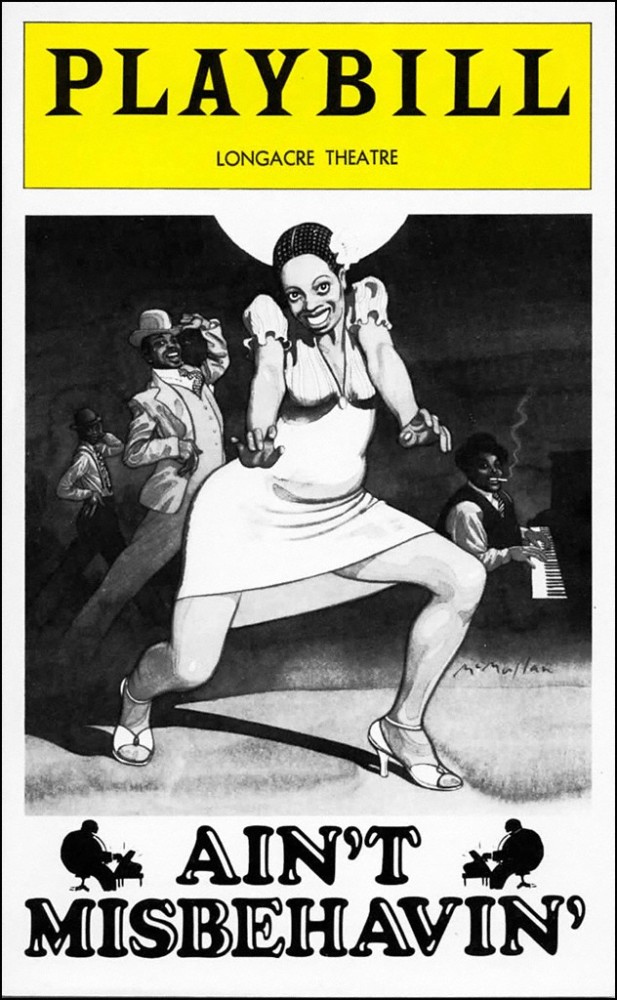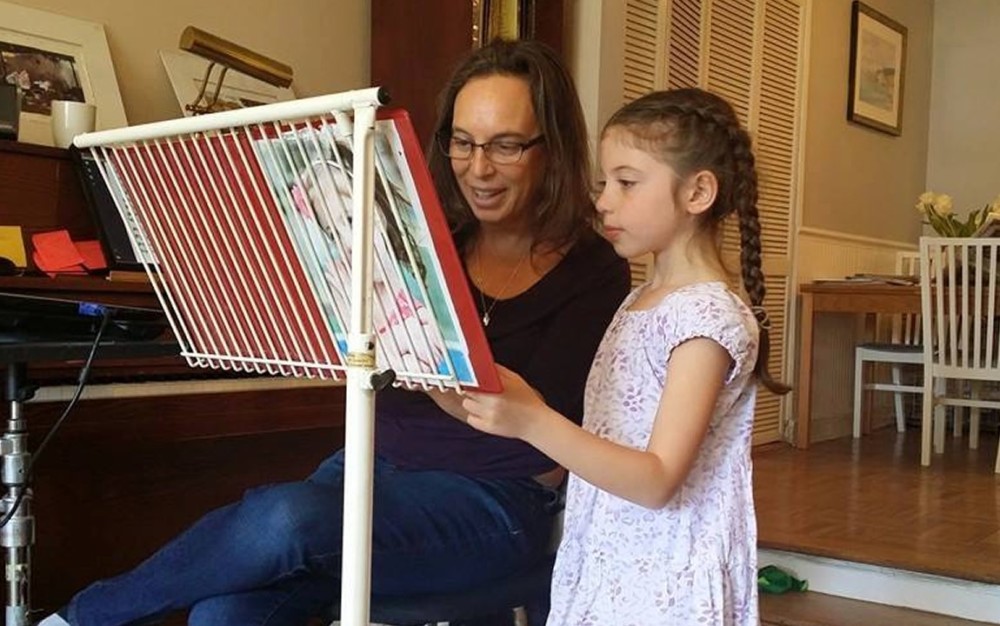An Email Chat with McGowan Trilogy’s Seamus Scanlon

Seamus Scanlon
by Carole Di Tosti
In October 2014 one of the offerings of the Origin Company’s 1st Irish Theater Festival was Seamus Scanlon’s the McGowan Trilogy. My review for another outlet extolled the work which deals with the exploitation of human weakness used as a weapon to foment political violence. Since the production, I have occasionally been in touch with the playwright via social media. I caught up with Seamus again in virtuality-land email, as we “PAUSE” TO stay safe from infection in New York City, the epicenter of the COVID-19 pandemic.
Seamus Scanlon is a native of Galway, Ireland. In his email to me, he emphasized that Galway is a rich artistic haven, the home of “the Tony Award winning Druid Theater Company; the Galway International Arts Festival and The Cúirt International Festival of Literature.” The sterling notoriety of the area reflects the historic Irish women connected to literature and the theater. “Nora Barnacle (James Joyce’s wife) was born there and Lady Gregory (Yeats’ mentor and cofounder of the Abbey Theater in Dublin) lived about 15 miles from Galway.
Though Galway County was “the backdrop for Synge and Martin McDonagh,” Seamus ignored the vitality of his own birthplace. Candidly he states that “I was too timid to explore it.”
Initially, as the first in the family to pursue college, Seamus selected a science background with the thought that a career in science was more practical. Nevertheless, the writing impulse eventually emerged and he begin to indulge his imagination with crime fiction. His success encouraged him. He had seven pieces published in Akashic Books’ Mondays Are Murder slot.
Getting down to brass hardware, I asked Seamus the following questions as a fellow playwright curious to know about the inception and work on the McGowan Trilogy which has received world-wide renowned.


What experiences helped you frame the story?
I lived in Belfast for five years so I was exposed to the daily life of Army patrols, constantly hovering Army helicopters, riots, shootings and July 12th marches where the deep seated tribal differences are in full flow. Before living in Belfast (Northern Ireland-UK) I had been affected greatly by the Hunger Strike in Belfast where 7 IRA and 3 INLA political prisoners died.
Hunger strikes in Ireland have a long tradition. They are doubly significant and symbolic because of the Great Famine (1847) which killed 1.5 million and caused forced emigration of 1.5 million to the US. A therapist in Belfast treating ex-gunmen (late teens and early twenties) who had killed for the ‘cause’ noted they were suffering major trauma after killing someone.
How long did you work on the McGowan Trilogy?
Not very long. It was kick started by Nancy Manocherian’s Cell Theater Company Ltd (artistic director Kira Simring) who read a short play of mine Dancing at Lunacy and then staged it as part of the The Irish Cell event in March 2012. They then asked for a full play so I developed two other inter related one acts – The Long Wet Grass and Boys Swam Before Me. They were great to work with – two Jewish women interested in all things Irish. This was staged in Oct 2014 as part of the 1st Irish Theater Festival and was well received. The play was also published by Arlen House. I offer a free digital copy here.
Where has it been produced since it premiered in the US?
After The Cell production in 2014, they brought it to Hastings (UK) to the Kino-Teatr owned by a devoted Russian Hibernophile, Olga Manonova. The same Summer it was staged in two venues in Galway and in Westport’s Townhall.
The major surprise for me came in 2018. The McGowan Trilogy (in Japanese) was staged in Japan (in Japanese) to full houses. The lead was a rising movie star so that helped! I travelled to Tokyo to see it, and it was an amazing experience. They were selling merchandise in the foyer so I felt like a rock star! Japan has an amazing richness of theater and other art forms.


Have you been able to get around Covid 19 virtually as other playwrights and artists have done?
The Butterfly Love Song which premiered in NYC in October 2019 and was screened in Dublin in early March 2020 is now being screened offline by various film festivals so that is encouraging. Film lends itself to this more than any other artistic format. Watch the trailer and the full film free at Irish Film London.





















